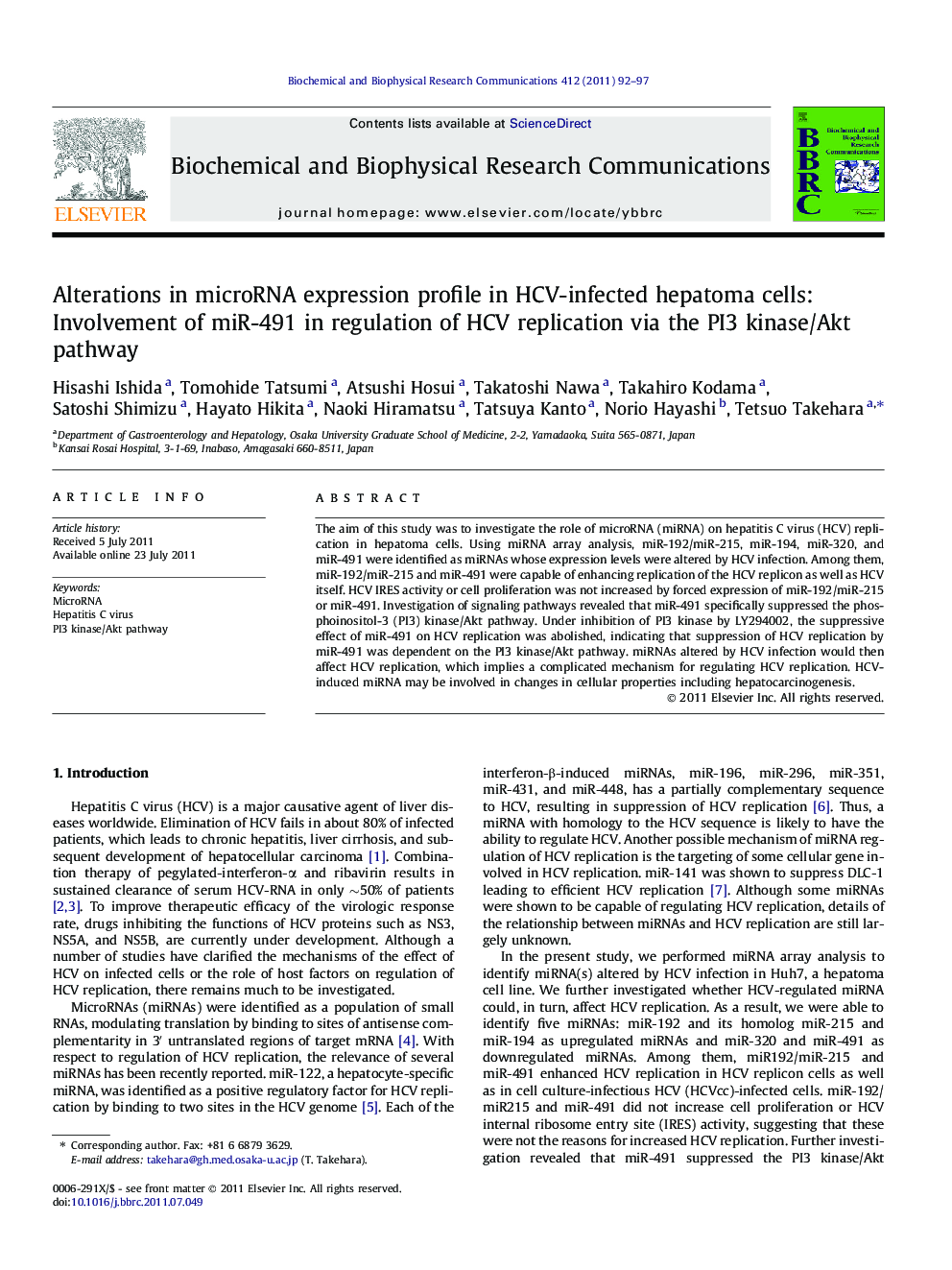| کد مقاله | کد نشریه | سال انتشار | مقاله انگلیسی | نسخه تمام متن |
|---|---|---|---|---|
| 1930301 | 1050501 | 2011 | 6 صفحه PDF | دانلود رایگان |

The aim of this study was to investigate the role of microRNA (miRNA) on hepatitis C virus (HCV) replication in hepatoma cells. Using miRNA array analysis, miR-192/miR-215, miR-194, miR-320, and miR-491 were identified as miRNAs whose expression levels were altered by HCV infection. Among them, miR-192/miR-215 and miR-491 were capable of enhancing replication of the HCV replicon as well as HCV itself. HCV IRES activity or cell proliferation was not increased by forced expression of miR-192/miR-215 or miR-491. Investigation of signaling pathways revealed that miR-491 specifically suppressed the phosphoinositol-3 (PI3) kinase/Akt pathway. Under inhibition of PI3 kinase by LY294002, the suppressive effect of miR-491 on HCV replication was abolished, indicating that suppression of HCV replication by miR-491 was dependent on the PI3 kinase/Akt pathway. miRNAs altered by HCV infection would then affect HCV replication, which implies a complicated mechanism for regulating HCV replication. HCV-induced miRNA may be involved in changes in cellular properties including hepatocarcinogenesis.
► HCV infection upregulated miR-192, -194, -215, downregulated miR-320, -491.
► Transfection of miR-192, -215, and -491 enhanced HCV replication.
► Transfection of miR-491 inhibited Akt phosphorylation.
► Akt inhibition could be responsible for augmentation of HCV replication by miR-491.
Journal: Biochemical and Biophysical Research Communications - Volume 412, Issue 1, 19 August 2011, Pages 92–97